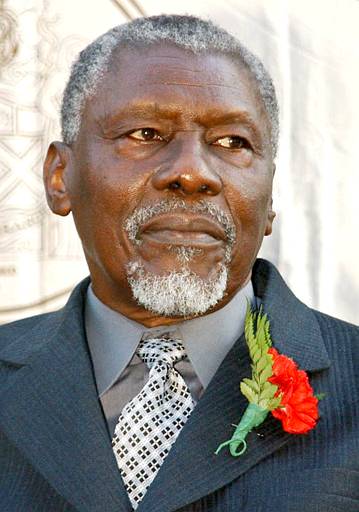Coxsone Dodd (Clement Seymour Dodd)

Coxsone Dodd used to play records to the customers in his parents’ shop. During a spell in the American South he became familiar with the rhythm and blues music popular there at the time. In 1954, back in Jamaica, he set up the Downbeat Sound System, being the owner of an amplifier, a turntable, and some US records, which he would import from New Orleans and Miami. With the success of his sound system, and in a competitive environment, Dodd would make trips through the US looking for new tunes to attract the Jamaican public. While he did, his mother Doris Darlington would run the sound system and play the tunes. Dodd opened five different sound systems, each playing every night. To run his sound systems, Dodd appointed people such as Lee “Scratch” Perry, who was Dodd’s right-hand man during his early career, U-Roy and Prince Buster. His wife, Norma Dodd, was the co-administrator of his label and ran all of the accounts. When the R&B craze ended in the United States, Coxsone Dodd and his rivals were forced to begin recording their own Jamaican music in order to meet the local demand for new music. Initially these recordings were exclusively for a particular sound system but the records quickly developed into an industry in their own right. In 1959 he founded a record company called World Disc. 1962 he produced the Jazz record “I cover the waterfront” on the Port-O-Jam label, two of the musicians who played on the album, Roland Alphonso and Don Drummond became founding members of the Skatalites one year later. In 1963 he opened Studio One on Brentford Road, Kingston. It was the first black-owned recording studio in Jamaica (see 1963 in music). He held regular Sunday evening auditions in search of new talent, and it was here that Dodd auditioned Bob Marley, singing as a part of The Wailers. He gave the group a five-year exclusive contract, paying them £20 for each song they recorded; for a time, Marley slept in a back room of the studio. The Marley-penned song “Simmer Down”, a Dodd production, went to number one in Jamaica in February 1964. However, he became notorious for rarely paying the band the money they were owed for the record sales, and as a result the group were living in relative poverty despite being household names in Jamaica. This eventually became their catalyst for leaving the label. When Marley left Coxsone in 1966, the former released The Wailers’ first album named The Wailing Wailers.
In the early 1960s, Coxsone Dodd was producing ska hits by Toots and the Maytals, the Gaylads, and the Skatalites. During the late 1960s and 1970s, the “Studio One sound” was synonymous with the sound of ska, rocksteady and reggae, and Dodd attracted some of the best of Jamaican talent to his stable during this time, including Burning Spear, Ras Michael, Delroy Wilson, Horace Andy and Sugar Minott. In 2002 he was awarded a Gold Musgrave Medal by the Institute of Jamaica. He continued to be active in the music industry into his seventies, and on 1 May 2004 Kingston’s Brentford Road was renamed Studio One Boulevard in a ceremony which paid tribute to his accomplishments as a producer. He died suddenly of a heart attack four days later while working at Studio One. He was survived by his wife Norma, who passed in 2010. Dodd was posthumously awarded the Order of Distinction, in the rank of Commander on 15 October 2007, for service to the Jamaica music industry.
Born
- January, 26, 1932
- Kingston, Jamaica
Died
- May, 05, 2004
- Kingston, Jamaica
Cause of Death
- heart attack
Cemetery
- National Heroes Park
- Kingston, Jamaica
- USA


